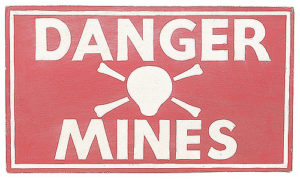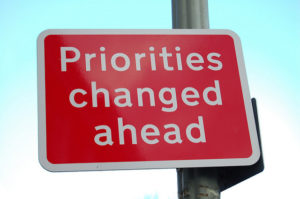Uuummm, um, ummm! No, this is not a Gregorian chant. This is what you sound like when you don’t know what to say next.
Pretty much every communication class, every communication coach, and every communication club puts a lot of emphasis on these verbal fillers (um, like, y’know, and, so, er, but, okay, uh, etc).
Here’s my policy:
Ums don’t matter.
The Distraction
Have you ever listened to a speaker that used so many filler words that it sounded very unprepared and nervous? It distracts from listening? Right?

A colleague of mine attended a presentation where an um-aholic was presenting. My colleague started counting the ums. After twenty some-odd ums in the first couple minutes, she gave up.
Were ums the problem? Most coaches would say yes; I say emphatically NO!
You would rather sit in the audience and count how many times the speaker says “um” rather than actually contemplate the speaker’s message? I’ve got news for you: that speaker was boring!
The bigger problem is NOT that the speaker uses filler words. How boring do you have to be to make um-counting sound like fun?
When you’re NOT engaging, unnecessary ums distract from your message. On the other hand, if you ARE engaging, your interesting presentation distracts the listener from the ums. It works both ways.
Why is it that ums are also associated with meditation? They can’t always be bad.
A Matter of Priorities
- Leaving an impact
- Connecting with listeners
- Making a clear point
- Establishing credibility
- Holding attention
- Strengthening relationships
- Establishing authenticity
- Achieving compliance
- Respecting the listener
- Making the sale
- Avoiding ums
It’s all about priorities. Here’s a list of admirable goals. Look at that list and tell me which aim would be your top priority.
What’s more important? Making your point clear, or avoiding ums? Leaving the right impression, or avoiding ums?
I realize that these are not mutually exclusive options, but if I had to have one without the other, avoiding ums would not even make the top 100 on my list of priorities.
People put a lot of emphasis on it, even when they admit that many other things are far more important. Every second you spend focusing on filler words, you’re NOT focusing on something more important.
In fact, among all the people I have ever coached, I’ve only coached someone on avoiding ums once–and I only did it that once because he specifically asked me to.
Dangerous Generalizations
Even worse, if you make avoiding filler words a priority, there is a good chance you actually make yourself worse public speaker. This happens because all filler words are not created equal.
Once you fall into the trap creating a list of banned “words,” that list starts to grow dramatically. Next thing you know, you’ll feel the need to avoid any non-word: Ooooh, wow, ahh, or even sound effects.
Some of those non-words are normal, valuable, natural parts of communication. Sometimes you want to convey a hesitation or ambiguity on purpose. However, if you are consciously avoiding verbal filler, you have to script that hesitation. How unnatural is that?
Despite what you hear, some of the best speakers in the word have lots of verbal filler. Just listen to Barack Obama when he’s not using a teleprompter. A good reader is not the same as a good speaker.

Don’t get me wrong, I’m not saying you should ADD filler on purpose. I’m just saying the generalization about the bad aspects of verbal filler is wrong–precisely because it is so generalized.
Sometimes you want to imply an emotion that a grunt can convey better than a word. Sometimes you want to sound more like an authentic human speaker than a pitch perfect automaton.
As long as it’s not inappropriate, natural sounding speech can actually improve the impression you leave. Of course, there is a point of excess, but that is not a black and white line.
Once you start focusing on verbal filler, the thought police won’t settle for ums, and ahs. Pretty soon, somebody will tell you not to ask what they perceive as “filler” questions: Okay? Right? You know?
Here we enter dangerous territory. In context, asking for confirmation with these questions is a FANTASTIC thing to do! Right? It encourages attention and interaction, allows for follow up, and empowers the individual to follow along. Doesn’t it?
Context matters.
You know (not a question but actual filler), I can imagine a presentation where a Gregorian chant is completely appropriate: Um um ummm …
Dangerous generalizations about banning filler words ignore that context.
Ums Don’t Matter

So, like, y’know, you don’t want to like sound like a 1980’s style valley girl? Okay? Like, gag me with a spoon, right?
My solution: ignore filler words. Don’t focus your time on avoiding ums or editing out extraneous verbal hiccups.
Don’t try to eliminate the perceived negative.
Spend your time adding the known positive.
If you improve the most important aspects of your communication first, those more important aspects will automatically take the place of the less important filler and push the ums out of the way.
When you clarify your message, the UMs disappear automatically.
When you build better rapport, the AHs disappear by themselves.
When you learn to be more engaging, no one cares about the SOs.
If you think you have a problem with filler words, or if someone else tells you so, the problem is not filler words. The problem is that you did not engage them, you weren’t clear enough, or perhaps you didn’t make a subconscious connection first.
Solve the higher priority problem first by picking the principle/color from my SpeechDeck presentation skills system that addresses the real need.
So … what really matters more is like, er, you know … the thing that actually matters more. But, ya know, you already knew that. Right?

